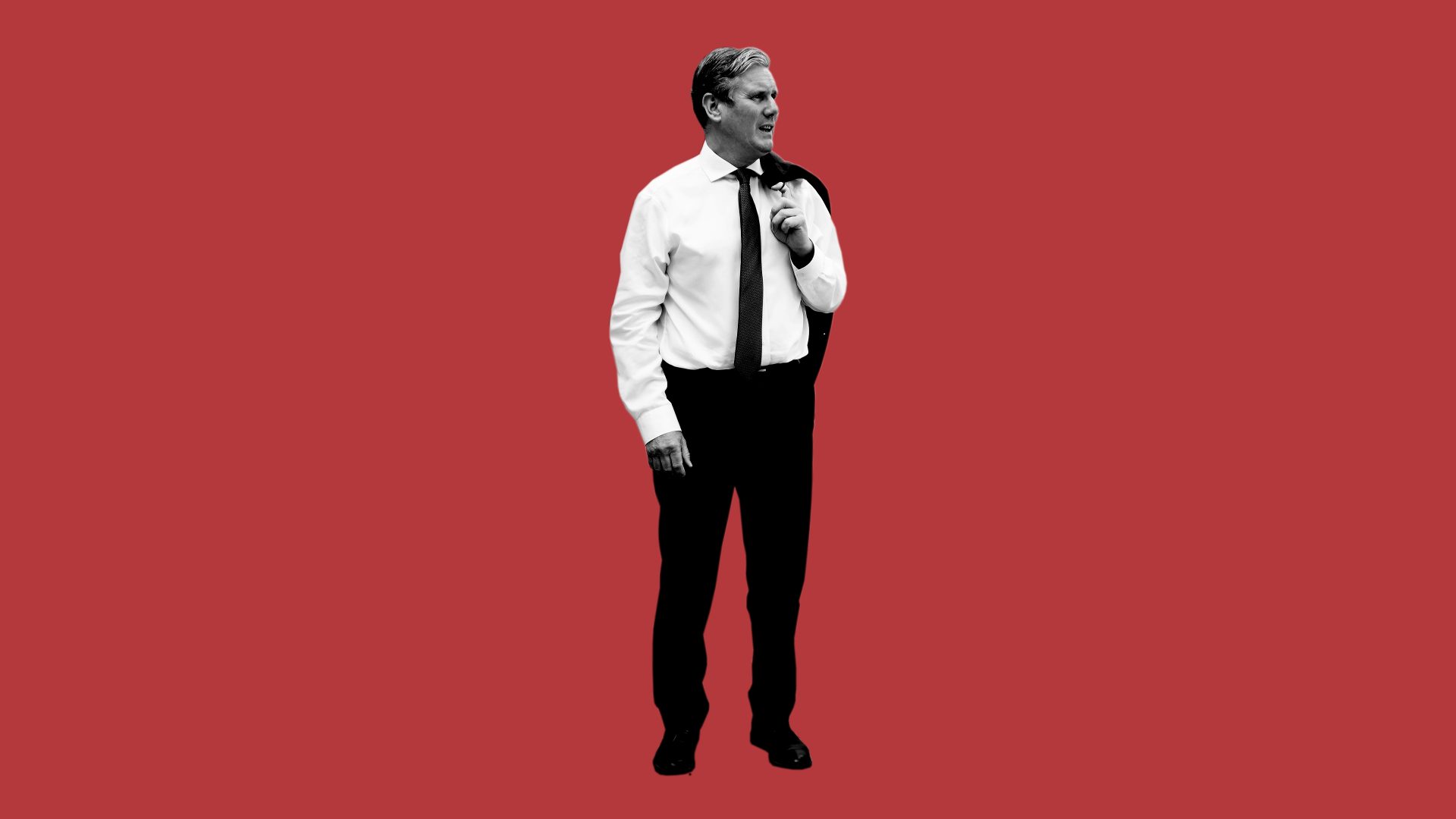The launch of new rules on paperwork for EU food and agricultural imports is another disaster for the British economy and another hammer-blow to the UK’s trading ties with Europe.
But one group who may be quietly relieved by this are the senior Labour MPs who could well be ministers in a few months’ time. Because the truth is that if this Conservative government does not complete the Brexit implementation, an incoming Labour government would have to do it for them.
That would be heartbreaking for the pro-European centre left. After years of Tory failure and delay, Labour does not want to be seen as the party that finally “gets Brexit done”.
Even without having to impose new border checks, the decade to come will be very painful for a future Labour government. Without a change of course there will be ever more pointless separation, as Britain grows further apart from the EU every year.
Labour in office will want to focus on cooperation and rebuilding ties. It is true that the party says there will be no return to the single market or the customs union, let alone a debate on rejoining the EU. But Keir Starmer himself has said “we don’t want to diverge”, particularly on environmental, consumer and labour protections.
The party’s mantra is “make Brexit work” and we can expect Labour to kick off with a serious attempt to reset and institutionalise the UK-EU relationship. An initial surge of goodwill should help to get things moving. Incoming ministers will pick a few areas where they wish to align voluntarily, such as consumer safety standards.
They will then seek new machinery for formal coordination and partnership. Shadow ministers have placed particular emphasis on a new structure for security and foreign policy cooperation but regular, formalised dialogue would help across the board.
They will also get stuck into case-by-case negotiations to improve the EU-UK settlement. The party says it will seek realignment on agriculture and food safety to avoid the need for border checks; negotiate mutual recognition of professional standards and qualifications, as a pale imitation of the single market in services; and seek a waiver on travel restrictions for touring artists.
We can add to that list some other fairly uncontroversial priorities. Labour is likely to seek a return to the Erasmus student exchange programme; a better solution on rules of origin for manufacturing supply chains; closer alignment on medicines and pharmaceuticals, and possibly also on energy markets and emissions trading.
Already this is quite an in-tray. Earlier this month shadow Northern Ireland secretary Hilary Benn MP was at pains to emphasise that the future relationship would evolve “step by step”. The watchword will be pragmatism, with staged, piecemeal improvement.
That does not mean it will be easy. Labour is thinking through what Britain will want from the EU, but there is also the question of what the EU will want from us. The UK has things it can offer, including security assets, wind resources and fishing rights. But such negotiations are bound to attract controversy. For example, what happens when Brussels asks for a youth mobility scheme in exchange for progress on other fronts?
And in those sector-by-sector deals, to what extent will the EU insist that the UK aligns completely with its ever-changing rulebook and on full oversight from the European Court of Justice? Paradoxically, the more the UK is made to be a pure rule-taker, the fewer the areas where Labour ministers will feel comfortable aligning.
Such deals will be helpful but they won’t come close to undoing the economic damage of Brexit. Many within Labour hope a new government will go further. Speaking to the Fabian Society two weeks ago, Sadiq Khan, mayor of London, called for debate on re-entering the single market and customs union. It was a notable challenge to the Labour frontbench, in remarks that were otherwise studiously loyal.
There is no chance of a Labour government seeking membership of the single market. Without the sovereignty of full EU membership, it would mean giving up too much.
But the case for the customs union is much stronger. The last few years have proved that the theoretical upside of an independent trade policy is far smaller than the real-world disadvantages of severed EU economic ties.
Labour won’t want to breach a clear manifesto commitment, so Starmer will not actually join the customs union within five years. But don’t rule out ministers starting to lay the ground ready for a potential second-term entry.
Today support for the EU in opinion polls is broad but not deep. The arguments are untested and the salience of Europe as an issue is low. But it is noteworthy that Khan thinks it is in his political interests in London to call for closer ties with the rest of Europe.
A lot would have to change for the rest of Britain to catch up with London’s pro-European sentiment. But never say never. Perhaps Labour will one day start to think aloud about rejoining, though that day is highly unlikely to come during a first term in office. The party contains many passionate Europhiles, but, on this, it will follow public opinion, not lead it.
Andrew Harrop is general secretary of the Fabian Society










